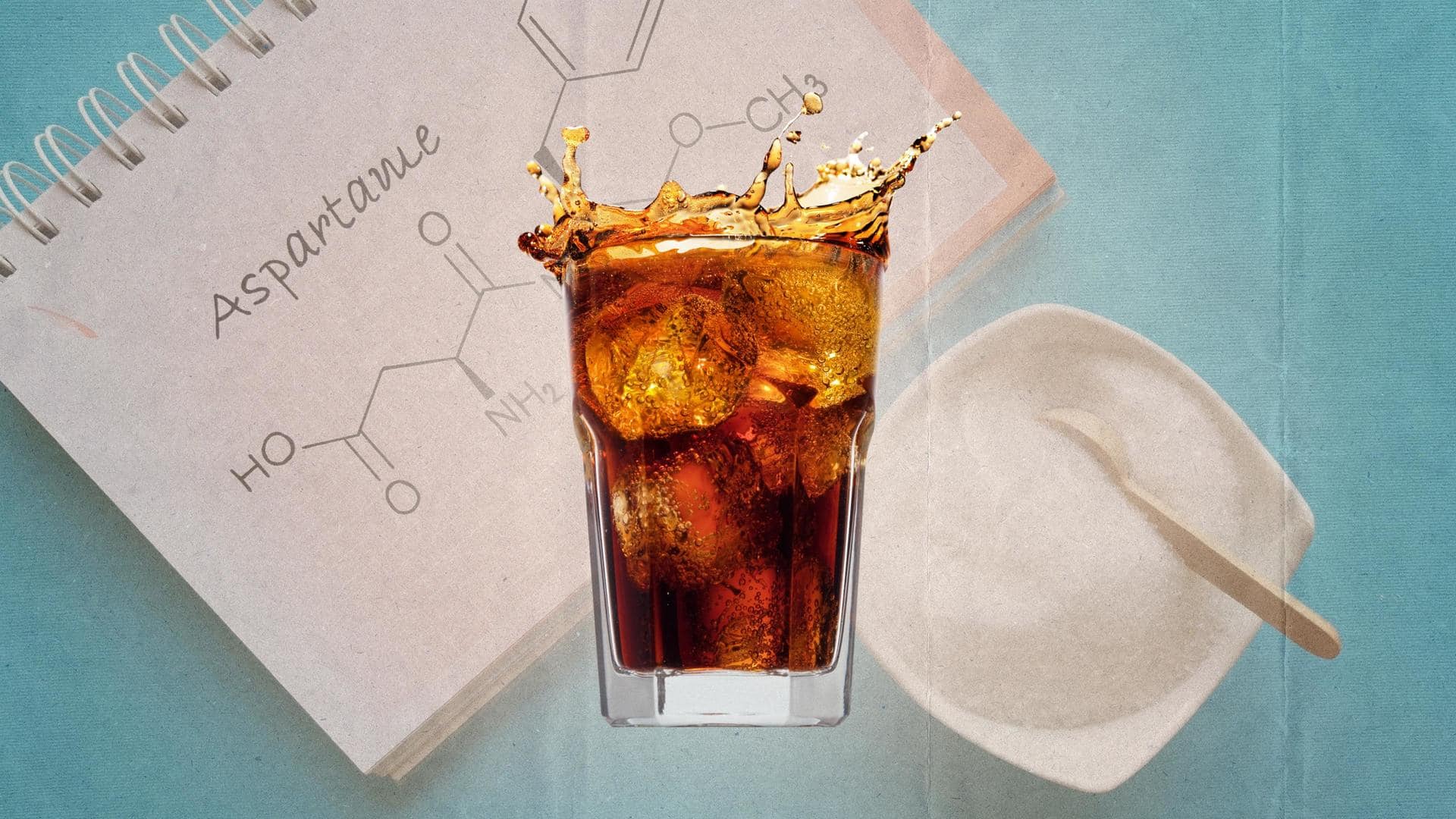
Artificial sweetener aspartame 'carcinogenic,' but safe within limits: WHO
What's the story
The World Health Organization's International Research Agency on Cancer (IARC)'s assessment of the health impact of aspartame came out on Friday. The results confirmed that aspartame is a potential carcinogen. This artificial sweetener is often found in Diet Coke, gelatin-based products, and sugar-free foods like sugar-free gum. However, they also reassured that it is safe for individuals when consumed within the recommended daily limit.
Quote
Moderation is key
"We are not advising companies to withdraw products, nor are we advising consumers to stop consuming altogether. We are just advising for a bit of moderation," said Francesco Branca, the World Health Organization's nutrition and food safety director.
Recommended daily intake
Aspartame's acceptable daily intake (ADI)
Per the American Cancer Society, the FDA's ADI for aspartame is 50mg/kg of body weight per day. However, the Joint FAO/WHO Expert Committee on Food Additives (JECFA) and the European Food Safety Authority (EFSA) recommend a lower ADI for aspartame, at 40mg/kg. To note, an individual weighing 70kg would have to consume 9-14 cans of diet soda daily to surpass the 40mg/kg ADI.
Hepatocellular carcinoma
Aspartame linked to liver cancer hepatocellular carcinoma
Aspartame was approved by the FDA in 1974 and is used as a sweetener in food items like gum, cereals, instant coffee, dairy products, and more. However, the WHO's IARC has now identified a possible link between aspartame and a type of liver cancer called hepatocellular carcinoma after reviewing three large human studies conducted in the US and Europe that examined artificially sweetened beverages.
Limited evidence
Classification based on limited evidence
Dr. Mary Schubauer-Berigan, a senior official at the IARC, highlighted that the classification of aspartame as a potential carcinogen is based on limited evidence. Dr. Schubauer-Berigan pointed out that the three aforementioned studies may have been affected by chance, bias, or other limitations. To ascertain whether the consumption of this artificial sweetener can genuinely result in cancer, further research is necessary, she stated.
Group 2B
Placed under Group 2B
Moreover, aspartame was put in Group 2B, which is like a watchlist of suspicious substances that the WHO thinks might have the potential to cause cancer in humans. Right now, there are 323 different agents on this list, and it includes some of the widely used wholesome entities such as aloe vera extracts, bracken ferns, and even traditional Asian pickled vegetables like kimchi.
Carcinogenicity
WHO classifies agents into 4 categories
There are four main classifications for agents based on their potential carcinogenicity to humans. Group 1 contains 126 agents confirmed as "carcinogenic to humans." Group 2A has 95 agents classified as "probably carcinogenic." Group 2B includes 323 agents classified as "possibly carcinogenic." Group 3 consists of 500 agents that are "not classifiable as to their carcinogenicity to humans."
Health
Found in wide variety of food and beverages
Aspartame is commonly used in a wide range of food and drink items. You can find it in diet drinks, chewing gum, gelatin, ice cream, yogurt, breakfast cereals, toothpaste, cough drops, and even chewable vitamins. In May, the WHO said that artificial sweeteners, including aspartame, don't actually aid in weight loss as many believe and can potentially have serious health consequences.